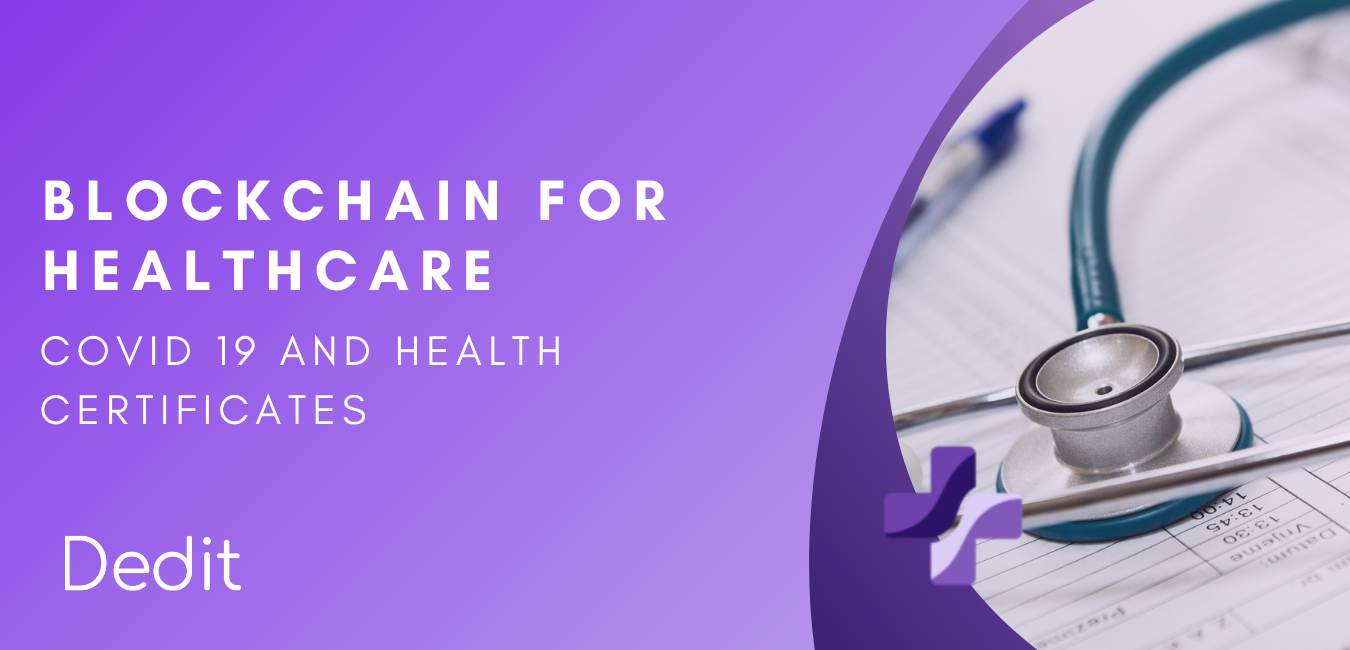
BLOCKCHAIN FOR HEALTHCARE
The use of technologies based on distributed registers could be a turning point to safeguard the health and rights of citizens/workers and also to accelerate the socio-economic recovery of our country, especially during the health emergency.
Blockchain technology, ensuring the immutability of registers, transparency of operations, traceability of transactions and offering data in pseudo-anonymous, with the security of cryptography it is the appropriate solution to treat the health data for these purposes.
WHY IS BLOCKCHAIN THE RIGHT TECHNOLOGY?
BLOCKCHAIN – BLOCKS AND PROTOCOL
A blockchain is a special database type in which data can only be added (and never removed or modified). As the name suggests, the blockchain looks like a chain of blocks – term that we use to define groups of information added to the database.
BLOCKS
The blocks of this chain can be imagined as drawers in which to insert the documents. Once inserted, documents are not editable and semi-public (more precisely in a pseudo-anonymous way).
Each block is divided into two sections and contains, within its upper part, defined as block head or block header, some parameters that identify it. These include the block creation time, defined as time stamp or trustless timestamp. This parameter is crucial because it makes the blockchain equal to a global calendar server or simply a global calendar.
UNIQUE FINGERPRINT
The univocal fingerprint of the certificate or hash value is always recorded in Blockchain.
With the cryptographic function used, two documents can’t coexist with the same hash. So, falsify a document associated with a hash is impossible.
TIMESTAMP
The timestamp is an important element of blockchain technology because it allows you to assign a certain date and time to a block. This property is reflected on any information recorded in that block. So, it’s possible to prove the existence of every digital document, starting from a certain moment, whose hash is recorded in the blockchain and ensure immutability over time.

OUR SOLUTION
Dedit, our solution, could help citizens who need to demonstrate their health in partially limited circulation and post-emergency scenarios. So, the citizen could have the guarantee to be safe at work or elsewhere, away from potential sources of infection.
The certificate obtained through Dedit can guarantee evidence of the existence and validity of certificates while citizens will have the opportunity to share their information without revealing its full content, but in a pseudo-anonymous form.
The result is that the certificate issued by the health authority is easily verifiable by anyone with a QR code visible in the receipt of notarization of Dedit.
The data from the screening, as well as vaccinations or recovery, will be registered by the certifying entity within a blockchain. The receipt of registration on blockchain will be a guarantee of the screening result and will constitute a “ certificate of suitability” or “green pass” of the citizen.
Every receipt will be associated with the institution that will issue the certificate (that will notify the public address of his purse on its channels) and also associated with the citizen to whom the receipt is issued because his tax code will be included in the description.
In this way, this information will not be exclusively informative of the health system but can be used by citizens to move freely and secure access to the workplace and also to benefit from services still subject to measures of social distancing. The registration receipt on blockchain
will act as a “laissez-passer” that the control entities may verify when the subject presents the registration receipt on blockchain.
HOW DOES IT WORK?
The registration procedure of the certificates on the Blockchain is simple, fast and economical on the platform Dedit that allows you to notarize, giving a certain date and proof of authorship to registered documents.
The doctor, pharmacist, health care provider or the hospital company register the vaccination certificate or the outcome of the Covid-19 test through Dedit, notarizing it on the public blockchain and permissionless Blockchain of Algorand. They can also enable the patient to download the original certificate of vaccination or the outcome of the test.
As explained above, falsifying a document whose hash has been registered in blockchain is practically impossible. So, if the health institution makes his address recognisable on the blockchain, the validity of the certificate is easily verifiable by anyone in an incontrovertible manner.
Through Dedit, the user will get a downloadable and printable health passport containing location and information on the laboratory/ASL/doctor or healthcare professional who carried out the test or administered the vaccine. So, a unique, verifiable and universal vaccine passport.